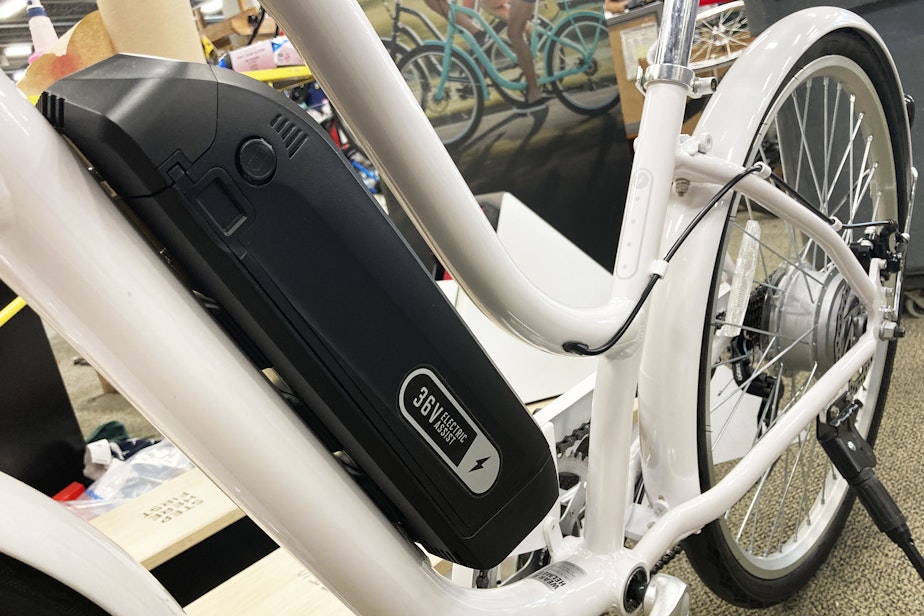Rolling toward Washington state: support for e-bikes

If you want to drive an electric car, all sorts of tax breaks and government programs can help with the expense: a $7,500 federal income tax credit and an exemption from Washington state’s 6.5% sales tax, to name just two.
But if you want to ride one of the most climate-friendly electric vehicles of all, you’re basically on your own.
Legislators in Olympia aim to change that.
As part of their proposed $13 billion transportation budgets, the Washington state Senate and House of Representatives have both approved spending several million dollars to expand access to electric bicycles.
Both chambers support creating $2 million worth of e-bike libraries to lend out the climate-friendly, space-saving vehicles.
The Senate has also approved $5 million in rebates for people who buy an e-bike: a $300 rebate for any Washington resident who buys an e-bike or a $1,200 rebate for a low-income buyer.
Sponsored
What actually gets funded over the next two years awaits budget negotiations between the two chambers and the governor’s signature.
As Washington state tries to shift from fossil fuels to clean electricity, the main push has been for electric cars.
Cars are the dominant transportation vehicle in the state and can do things—like transport a family of four—that no bike or e-bike can.
On the other hand, an e-bike costs a tiny fraction of what a new car costs to buy or operate.
E-bikes have small electric motors as well as pedals and can be propelled by a mix of human and battery power.
Sponsored
They flatten hills and make it possible for people who aren’t strong bikers to travel 20 miles or more without wearing themselves out or messing up the planet.
Electric vehicles have major environmental benefits over gas-powered cars, yet all cars and trucks contribute to traffic congestion, crashes, and fish-killing water pollution as dust from tires and brakes finds its way into nearby waterways.
In 2021, motor vehicle crashes killed 670 people in Washington state, a 20-year high, according to the Washington Traffic Safety Commission.
Producing a 2- or 3-ton electric car also chews up about 100 times more metal and plastic—and all the energy it takes to mine and manufacture those materials—than making an e-bike.
Bicycle advocates say the e-bike measures approved by Washington legislators would be the first programs in the state to support these green vehicles.
Sponsored
“It's not going to solve the climate crisis alone, but I think if we know anything, it's that we need to use any and all tools to to be reducing our greenhouse gas emissions,” said Vicky Clarke with the nonprofit Washington Bikes.
Money for e-bikes and other green programs is coming from Washington state’s new cap on carbon emissions. The cap is making it expensive for some companies to keep putting planet-heating carbon dioxide into the atmosphere.
Washington businesses in February paid $299 million in the state’s first auction for the right to pollute.
The state’s next carbon auction takes place May 31.




